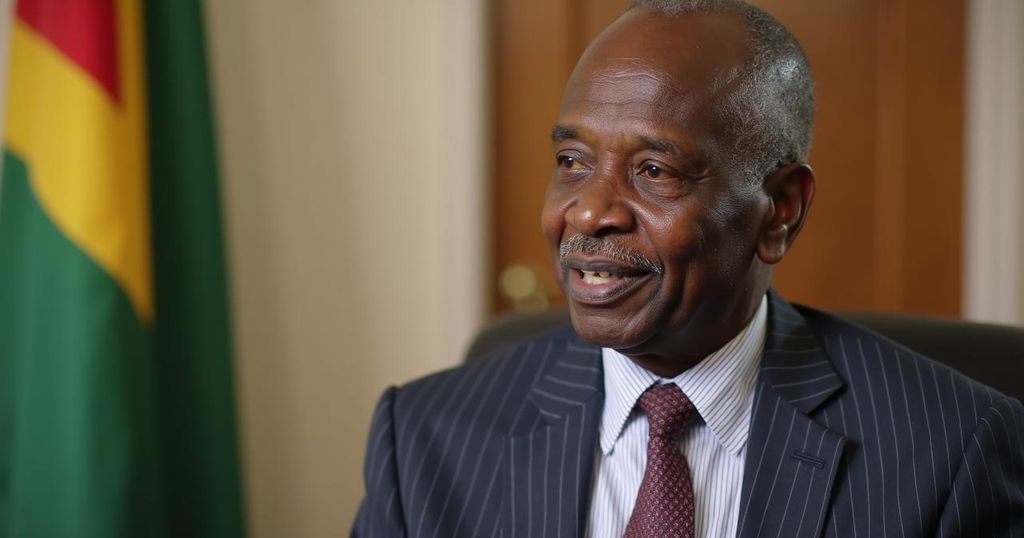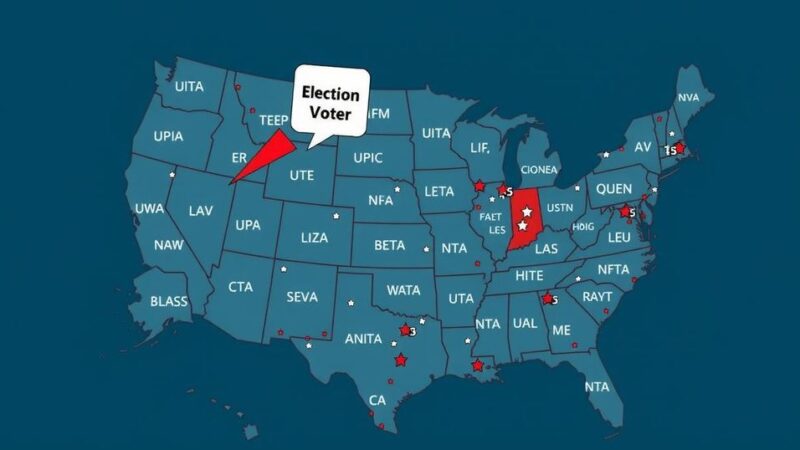In an interview with Radio Tamazuj, Professor Jok Madut Jok discusses the South Sudanese government’s misleading statements regarding elections. He claims the government is intentionally using the election narrative to divert attention from critical issues such as hunger and state bankruptcy. Despite hopes for the Tumaini Initiative mediated by Kenya, he doubts its ability to yield real solutions, viewing it as a means for the government to consolidate power rather than to enact necessary reforms.
In an insightful discussion with Radio Tamazuj, Professor Jok Madut Jok, a prominent anthropologist and former government official in South Sudan, expresses his firm belief that President Salva Kiir’s administration has misled the public regarding the likelihood of forthcoming elections. He argues that this deception has served as a smokescreen to distract attention from pressing national crises, including severe hunger, widespread displacement, and the crippling bankruptcy of the state. The backdrop of this situation is the prolonged political crisis in South Sudan, which has been exacerbated by the government’s repeated postponements of elections originally slated to follow the 2018 revitalized peace agreement. Professor Jok asserts that in the past year-and-a-half, the government has failed to meet fundamental requirements necessary for credible elections, such as the completion of a national census, the finalization of the constitution, the establishment of security measures, and the unification of armed forces. Instead, the government has continued to communicate a narrative of impending elections while fortifying its hold on power through extensions of the transitional period. Furthermore, despite hopes surrounding the ongoing Tumaini Initiative being mediated by the Government of Kenya, Professor Jok expresses skepticism regarding its effectiveness. He highlights that the initiative appears to be more about consolidating power for President Kiir and pacifying certain opposition leaders rather than making substantial progress in addressing the root causes of conflict and instability in South Sudan.
The political landscape of South Sudan is characterized by a series of failed agreements and unfulfilled promises since the country’s independence. The 2018 revitalized peace agreement was intended to guide the transition towards stable governance, including the holding of democratic elections. However, repeated extensions of the transitional period and postponements of elections have led to widespread public dissatisfaction and disillusionment with the leadership. Prof. Jok’s perspective sheds light on the systemic issues that plague South Sudan, including a lack of institutional development, widespread corruption, and inadequate responses to humanitarian crises. The Tumaini Initiative, aimed at negotiating peace among holdout opposition groups, also faces challenges as it contends with the entrenched interests of the current government.
In conclusion, Professor Jok Madut Jok’s interview reveals a critical view of President Salva Kiir’s administration and its tactics to maintain power while ignoring the dire needs of the South Sudanese people. His insights suggest that genuine progress towards peace and stability in the country is contingent upon a willingness from the leadership to address foundational issues, rather than merely prolonging temporary solutions. With no viable options on the horizon for the populace, their continued suffering remains a stark reality. The potential of the Tumaini Initiative will ultimately depend on the commitment of all stakeholders to engage in meaningful dialogue about the nation’s core challenges.
Original Source: www.radiotamazuj.org






